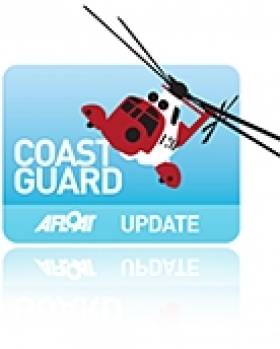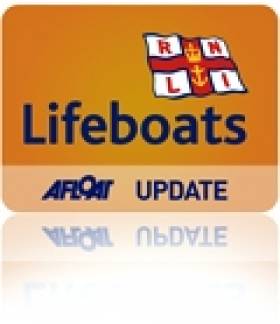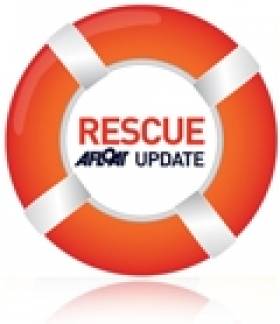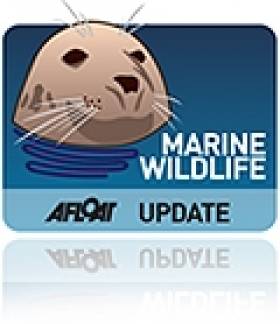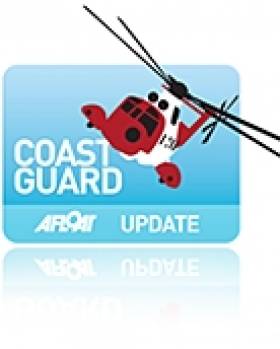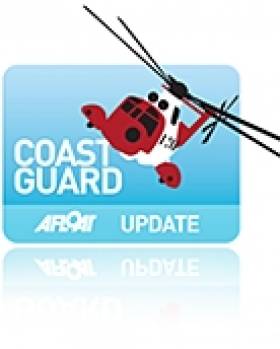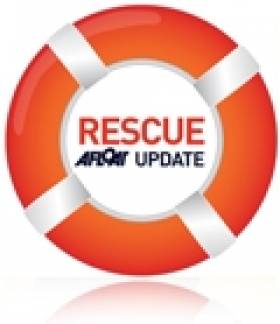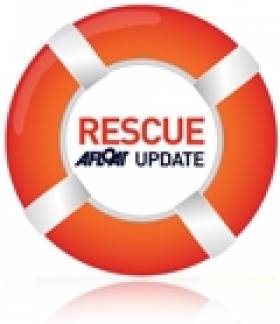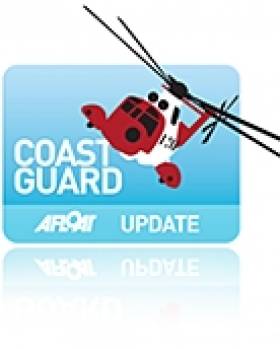Displaying items by tag: helicopter
Russian Ambassador Proposes Reward for Swanland Rescuers
#COASTGUARD - Russia's ambassador to Britain has proposed rewarding rescuers involved in the search for missing seamen in the Irish Sea last week following the sinking of the cargo ship Swanland.
As previously reported on Afloat.ie, the cargo vessel - carrying 3,000 tonnes of limestone - went down some 10 miles west of the Lleyn peninsula in north Wales in the early hours of last Sunday.
Two of the eight crew, who were all Russian, were recovered from the sea. A third was found deceased, while the remaining five are still missing.
As many as 11 coastguard rescue teams were involved in the search operation, which also saw an RAF rescue helicopter - piloted by Prince William - lend assistance.
At a meeting with the two rescued sailors in London last Wednesday, Ambassador Alexander Yakovenko commented: “What if we propose [the rescuers] to be rewarded by the Russian side?”
Russian news agency RIA Novosti has more on the story HERE.
Ballycotton Lifeboat Launched to Assist Ailing Fishing Vessel
#LIFEBOATS - Ballycotton's RNLI lifeboat was dispatched in poor conditions Wednesday evening to fishing boat taking on water some 20 miles south east of the Co Cork town, FishNewsEU.com reports.
Assisted by the Waterford coastguard helicopter Rescue 117, the lifeboat stood by the Irish-registered fishing vessel as its four-man crew kept the water intake under control and headed towards Ballycotton harbour under its own power.
Once returned to port, an RNLI salvage pump was placed aboard the boat to extract the excess water, and the crew offered thanks to the emergency services for their assistance.
Fisherman on Spanish Boat Airlifted to Cork
The skipper of the fishing vessel Albelo Primero radioed the Irish Coast Guard's Marine Rescue Co-ordination Centre on Wednesday night, reporting that a 33-year-old crewman had taken ill and required emergency medical attention.
The man was airlifted by coastguard helicopter to Cork Airport and transfered by ambulance to Cork University Hospital.
The Irish Times said his condition is not understood to be life-threatening.
Killer Whales, Minkes Spotted Off Coast
The Irish Whale and Dolphin Group (IWDG) has announced two new reports of whale spottings off the Irish coast in recent days.
On 14 October the east coast rescue helicopter spotted a group of at least five lunge-feeding whales just four miles off Dunany Point on the southern side of Dundalk Bay.
Their relatively small size, white banding on the pectoral fin and absense of any obvious blow confirmed them to be minkes - a marine wildlife record for the area.
"This is further proof, not that it is needed, that there is a growing list of places outside of the expected 'hotspots' where whale activity is now being documented," said the IWDG's Pádraig Whooley.
Yet more were spotted on the opposite coast the day after, when Nick Massett reported up to a dozen minke whales in a 1.5-mile box off Slea Head, near Dingle.
Meanwhile, this week a group of four killer whales was observed by the FV Celtic Cross on the prawn grounds off Co Louth, travelling in a north-westerly direction towards Dundalk Bay.
"There may well be something very interesting happening in this section of the Irish Sea that is attracting both baleen and toothed whale in the same area," said Whooley.
Coast Guard Chopper Rescues Couple in Galway Bay
The pair were lifted to safety by the Shannon-based Irish Coast Guard helicopter off the Co Clare coast, close to Blackhead.
They were subsequently treated at University Hospital Galway for possible hypothermia. No other injuries were reported.
Award for Helicopter Crews 'Outstanding Service' to Irish Maritime Search and Rescue
One of the world's leading helicopter services company, CHC has built up an unparalleled reputation for excellence in SAR aviation over 20 years of operations for the Irish Coast Guard.
The tireless efforts of the team, who provide a 24-hour a day service from their Shannon base, has seen them awarded a special Directors Award for Outstanding Service to maritime search and rescue in Ireland.
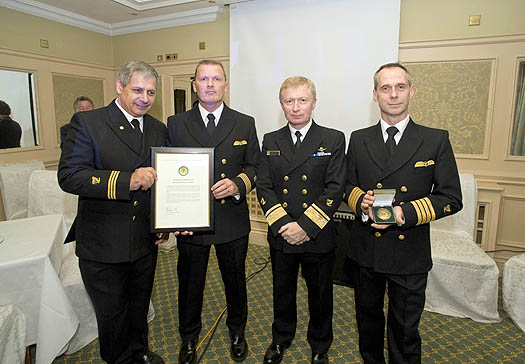
Top Brass: (from left to right) Paul Truss, Eamonn O'Broin, Chris Reynolds and Liam Flynn
The award recognises the personal commitment of all the crews, engineers and staff that have, over a period of two decades from 1991 to 2011, significantly enhanced Ireland's ability to affect a successful rescue and saved many lives.
It was accepted by Shannon Chief Pilot Captain Liam Flynn, Chief Crewman Eamonn O'Broin and Base Manager Paul Truss. Director of the Irish Coast Guard, Chris Reynolds, presented the award at a screening of a television documentary about the unit in Ennis.
The programme, called Rescue 115, will be aired on Irish channel RTE and will give people the opportunity to get an intimate view of what the crew does.
Mark Kelly, managing director of CHC in Ireland, said: "I would like to extend my heart felt congratulations to each and every member of the Shannon team past and present on the Directors Award in recognition of outstanding service to the State.
"The Directors Award is a very prestigious award which has only been given eight previous times.
"In presenting the award at the premiere of Rescue 115, Chris Reynolds spoke of the outstanding service given by the Shannon base and its staff to the State over the last twenty years, during which time it has carried out 3,732 missions.
"It is a well deserved recognition of two decades of tremendous courage, loyalty and dedication to providing a world class search and rescue service."
Earlier this year, a CHC SAR crew was recognised with a Best of Irish award for their role in successfully recovering the pilot of a light aircraft which crashed in the Irish Sea.
CHC Helicopter is the world's largest offshore helicopter operator and provides civilian search and rescue services in Ireland, the UK, Norway and Australia.
Kitesurfer Injured in West Cork
The Irish Times reports that the man got into difficulty in high wins while kitesurfing in Courtmacsherry Bay.
He was taken by Irish Coast Guard helicopter to Cork University Hospital, where he is reportedly in a stable condition.
Two kayakers and two windsurfers were also rescued in the Kinsale area on the same day in treacherous windy conditions.
Two Rescued in Galway Bay After Powerboat Breakdown
BreakingNews.ie reports that a Galway lifeboat rescued two men from a powerboat in Galway Bay yesterday afternoon.
The men were found drifting close to rocks after their 19-foot broke down south of New Harbour shortly after lunchtime.
The Irish Coast Guard Rescue Helicopter and the RNLI Lifeboat responded in minutes to the men's distress call.
Hull Damage To Blame for Stranded Divers
The accident that left four divers stranded off the Wexford coast last weekend was caused by damage to their boat's hull.
Divernet reports that the accident occurred when a section of tubing at the RIB's bow broke away from the hull.
The search operation, which included four RNLI lifeboats, an Irish Coast Guard helicopter and shore unit, was launched last Friday night when the group of divers failed to return to shore.
The divers were rescued at 6am on Saturday morning near the Saltee Islands, where they were found clinging to their upturned RIB.
Dramatic video of the divers' rescue was posted earlier this week on Afloat.ie.
Dublin Bay Mudflat Rescue Caught on Video
A Dubliner had a lucky escape after being stranded on mudflats between Baldoyle and Sutton Point, on Dublin Bay last week.
The man had sunk waist-deep in mud on a low tide and was unable to free himself. Dublin Fire Brigade was tasked to the scene along with the Howth Coast Guard unit. The Youtube clip of the entire incident is below.
Rescue helicopter 116, which was already on the ramp at Dublin Airport in preparation for a training exercise, was also tasked at 16.18pm according to a report on the the SAR Ireland blogspot.
After obtaining permission to cross the 'Live' runway at Dublin airport, R116 was on scene within minutes and quickly identified the man who was described as wearing 'dark clothing'. He was quickly winched to safety and returned to Dublin Airport at 16.36pm, where he availed of crew facilities to clean himself down and arrange transport home.
More on Dublin Bay here



























